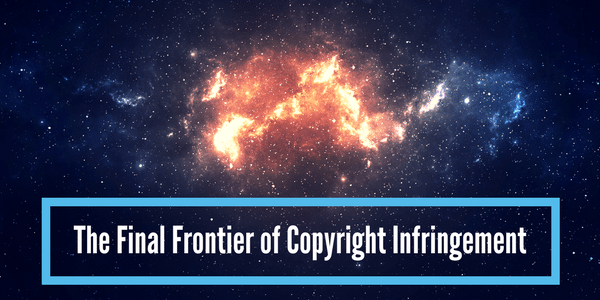
While the very concept of a fan film may seem like an open invitation for a copyright infringement lawsuit, the case Paramount Pictures brought against the makers of Axanar raises other questions for filmmakers around copyright infringement risk.
This case has been around for a while, and we’ve even covered it in a previous article about crowdfunded films. However, a judge’s recent rejection of fair use by Axanar, and the subsequent settlement by the two parties could have significant ramifications for filmmakers.
With the principal questions of the lawsuit still unresolved, filmmakers may be left scratching their heads about how detailed a copyright can be.
Copyright Infringement Lawsuit: Engage!
The original suit was filed shortly after the filmmakers raised over $1 million in funding. According to The Hollywood Reporter, not long after, the defendants countered that Paramount hadn’t even seen a script, so there was no definitive basis for claiming copyright infringement.
In March 2016, Paramount laid out their reply by claiming they own copyrights on very specific elements of the Star Trek universe. After a U.S. District Court Judge dismissed the fan filmmakers’ claim of fair use in January 2017, the two sides reached a settlement.
The Unexplored Space of Copyright Infringement
As it turns out, Paramount claims copyrights on a lot more than character names and general themes. As The Hollywood Reporter states, Paramount claimed to own the copyrights on…
- The Vulcan “look,” including their pointy ears.
- The gold Starfleet uniforms and insignias.
- The terms “Starfleet” and “Stardate.”
- The Klingon language.
While the original lawsuit may now be settled among the litigants, issues of copyright infringement over specific characteristics like those mentioned above are anything but settled.
Questions remain for filmmakers who want to, for example, portray characters as nerds by having them speak some Klingon.
Even basic settings can become a potential minefield for films. In sci-fi films, “warp drives” are not copyrighted, but a “stardate” is. Likewise for the fantasy genre: you can use orcs as much as you want, but not a hobbit.
Filmmakers may feel overwhelmed at the complexity of navigating copyrights. That’s where a Script Clearance Report comes in.
A Script Clearance Report examines your film’s script for potential copyright infringement (not to mention trademark violations, exposure to defamation lawsuits, and more).
With a Script Clearance Report in hand, filmmakers can make the changes before production starts — avoiding costly reshoots and potentially even more costly lawsuits.
Start your film off on the best possible course to the stars with a Script Clearance Report from The Clearance Lab today.

